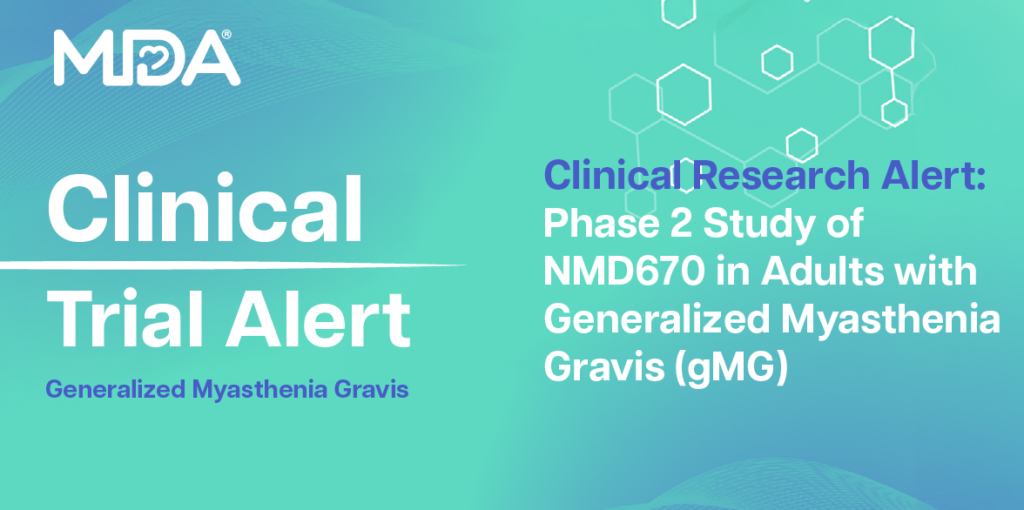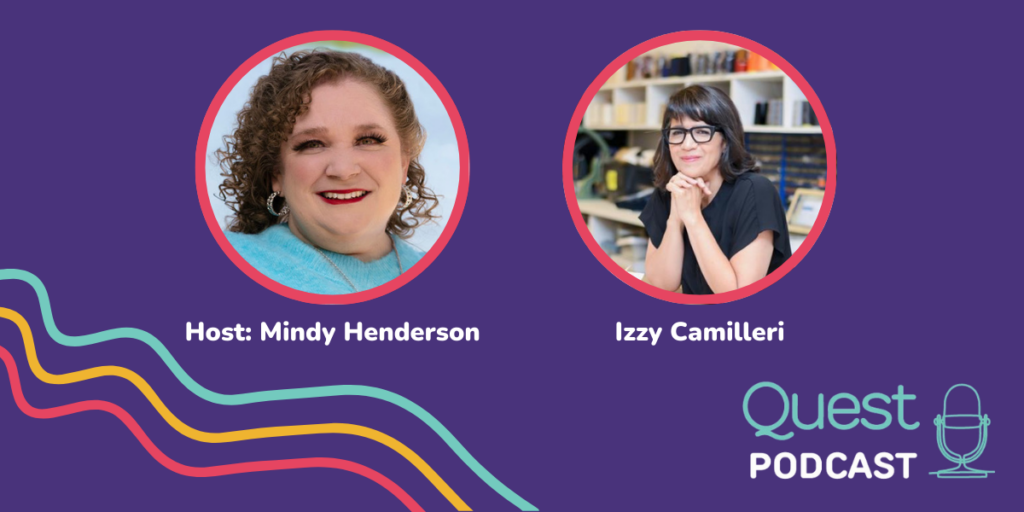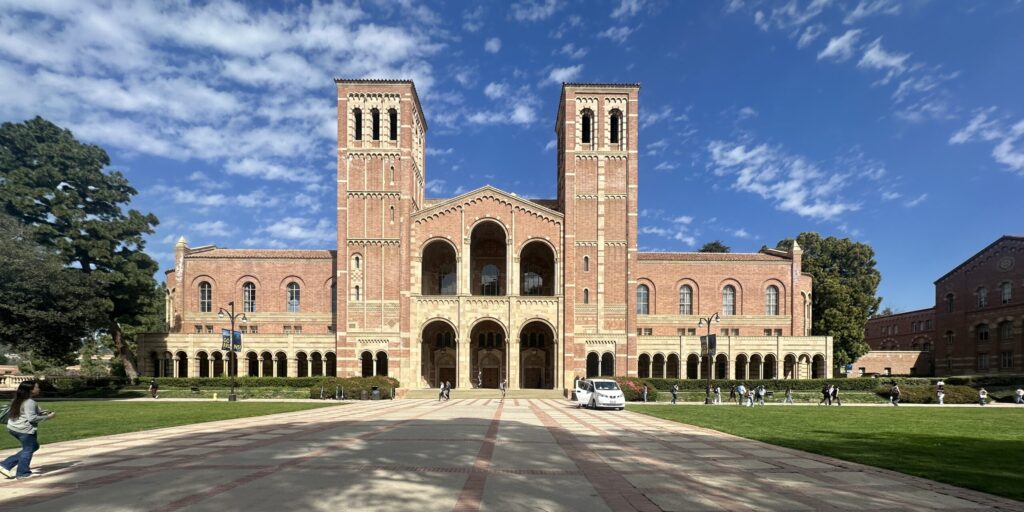
How to Maximize Your College Experience by Advocating for Accommodations and Accessibility
By Jaylin Hsu | Friday, May 9, 2025
5 Second Summary
Read more personal stories from members of the neuromuscular community about their College Experience as they share their journey, accomplishments, advice for accommodations and overcoming barriers, and insights into navigating college life with a disability.
Jaylin Hsu, from San Marino, California, is senior at the University of California, Los Angeles studying Molecular, Cell, & Developmental Biology. Since his freshman year, he has been involved in neuromuscular disease clinical research and plans to attend medical school. His passion stems from his scientific work and interactions with countless patients diagnosed with muscular dystrophies, and he strives to continue being an advocate for the neuromuscular community.
Attending college with a disability can present a variety of challenges, including accessibility. In the past several decades, universities across the United States have made significant strides in improving accessibility and accommodations for students with living with disabilities. However, a multitude of obstacles remain and, on most campuses, more action is needed. Persistent self-advocacy and a commitment to pushing for systemic change can act as catalysts in creating more accessible college experiences.
Students living with neuromuscular disease have a wide range of different needs and accessibility is not always one-size-fits-all. By actively collaborating with their respective college campuses, students can maximize their personal experiences and promote long-term impact projects that will benefit future students.
Self-advocacy and taking initiative on campus
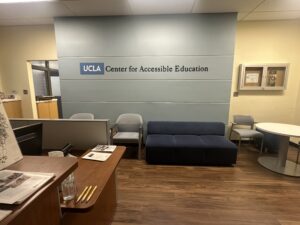
UCLA Center for Accessible Education
Many universities have general measures for ensuring that students with disabilities are supported in an inclusive and accessible environment. Yet, one of the most pertinent things to do as a student with a neuromuscular disease is to speak up for yourself by advocating for specific accommodations that you may require.
These steps can help ensure that both you and your college are prepared for an accessible school year:
-
Work with the Disabilities Service Center
A majority of colleges have centralized disability service centers, where students can meet with staff to discuss appropriate learning and housing accommodations. It is imperative that you reach out as early as possible to avoid delays or unforeseen circumstances. If there are no current suitable accommodations in place for your needs, do not be afraid to voice your concerns. Several key requests to keep in mind might include:
- Automatic doors and ramps to access lecture halls, classrooms, dining halls, dormitory buildings, and other common student areas.
- Adjustable desks and tables to allow comfortable work posture and reduce muscle strain.
- Voice-to-text assistance technology to reduce muscle strain and energy needed to write and type to complete school assignments.
- Time accommodations for completing assignments and tests and/or to travel between classes if needed.
- Handheld shower heads and benches in shower stalls to avoid fatigue from standing; showers large enough to accommodate hands-on assistance from a caregiver if needed.
- Accessible dorm rooms that allow enough room for any necessary equipment, power wheelchairs, etc.
-
Reach out to academic advisors and professors
Meeting with an academic advisor and/or professor before or early on in the academic term is vital. Professors are often very understanding of personal situations but have to be informed to work with students to create the necessary accommodations.
- Discuss specific timelines and/or assignments that may require accommodations.
- Create a personalized, manageable schedule that satisfies both academic and personal well-being.
-
Utilize campus medical resources
University health centers across the United States vary in their availability of specialists and medical services for students living with neuromuscular disease. Access to this specialized care is vital to maintaining good health.
It is important to:
- Reach out to the health center to discuss physical and occupational therapy appointments to maintain muscle strength and mobility. Some schools provide these health maintenance services to students.
If the school does not provide therapy services, request a referral for neuromuscular specialists in the area and ask for assistance to arrange necessary transportation for off-campus medical appointments. For example, UCLA offers physical and occupational therapy services through the Ashe Center, however, if your school currently does not have access to or provide these services, it is important to self-advocate to see if they would be willing to help connect you to local medical centers and assist in arranging transportation.
Creating lasting change on campus: Your voice can pave the path for the future
Beyond advocating to ensure the best possible college experience for yourself, you also have the opportunity to push for systemic change that will benefit future students with disabilities. Your voice and your experiences can help create change and increase universal accessibility. Several things you can do include:
-
Document and report barriers
Universities often attempt to identify areas that could be improved in terms of accessibility; however, direct documentation and reports from students can help pinpoint specific locations across campus.
A straightforward three-step process can help meet this goal. First, take a photo or video of the barrier. Second, think about how this barrier negatively impacts your educational or personal experience. Third, file a formal complaint with your school’s student disability services department.
-
Work with student organizations/government and faculty
Many voices are much louder and stronger than one voice alone. By undertaking collective action, you can help amplify the message to campus officials, especially those who are less aware of the daily challenges that students with neuromuscular diseases face. You can inspire and empower change through your own experiences.. Many universities have organizations dedicated to social justice and advocacy, and you could get involved by:
- Collaborating with the student government to brainstorm policies to pitch to administration.
- Working with faculty that support disability rights to identify barriers and push for meaningful outcomes.
- Spreading the message by working with your school’s newspaper to write blogs, hosting awareness weeks, and creating/sharing petitions to address specific identified issues.
Advocacy for accessibility makes a positive impact
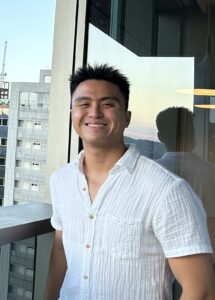
Jaylin Hsu
At UCLA, I have seen firsthand the positive impact persistent advocacy efforts can yield. New academic and residence buildings have been built with accessibility and accommodation purposes in mind, including automatic doors, larger shower stalls with hand-held shower heads and benches, and ramps that meet the needs of wheelchair users. Even older buildings have been renovated to include these arrangements. Moreover, UCLA’s Center for Accessible Education and Ashe Center provide students with the opportunity to maximize their academic experiences and ensure they continue to be in good health through a wide variety of medical services offered.
If you are a student living with neuromuscular disease and starting university or are currently enrolled in one, know that your voice matters. Universities are willing to listen, and you have the opportunity to advocate both for yourself and students coming after you. With the necessary persistence and collaboration, you can enact meaningful, long-term change and reach our goal of ensuring college campuses accommodate the needs of each and every student.
Next Steps and Useful Resources
- MDA Community Education empowers the neuromuscular disease (NMD) community through high-quality educational programs and materials. Learn valuable skills for overcoming common barriers in Access Workshops, get up-to-date information from experts in the field and connect with other families at Engage Symposiums, print out educational materials, and more.
- MDA’s Resource Center provides support, guidance, and resources for patients and families. Contact the MDA Resource Center at 1-833-ASK-MDA1 or ResourceCenter@mdausa.org
- Stay up-to-date on Quest content! Subscribe to Quest Magazine and Newsletter.
Disclaimer: No content on this site should ever be used as a substitute for direct medical advice from your doctor or other qualified clinician.


